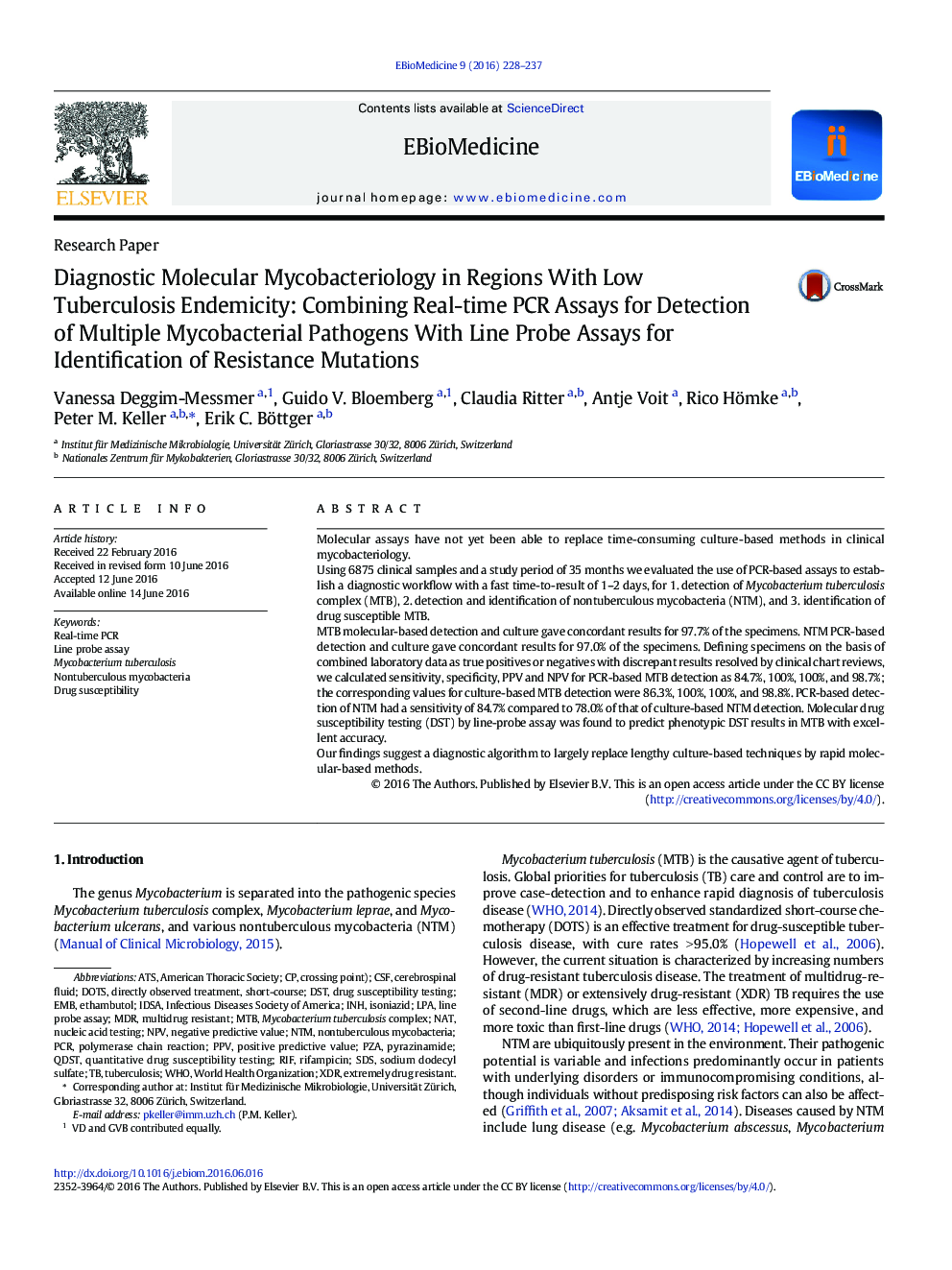| Article ID | Journal | Published Year | Pages | File Type |
|---|---|---|---|---|
| 2120720 | EBioMedicine | 2016 | 10 Pages |
•Molecular assays have not yet been able to replace time-consuming culture-based methods in the mycobacteriology laboratory.•We have evaluated genetic tests for: i) detection of MTB, ii) detection of NTM, and iii) identification of susceptible MTB.•Our findings suggest a diagnostic algorithm to replace lengthy culture-based techniques by rapid molecular-based methods.There are > 700 reports on molecular detection of tuberculosis in respiratory and non-respiratory specimens. Limited published data exist on molecular tests for detection of nontuberculous mycobacteria (NTM) and tuberculosis drug susceptibility in clinical samples. We demonstrate an excellent accuracy of molecular-based detection of tuberculosis and NTM in conjunction with molecular-based rapid recognition of drug-susceptible and drug-resistant tuberculosis. The diagnostic algorithm developed in this work allows the rapid recognition of clinically relevant mycobacterial infections and tuberculosis drug resistance.
Molecular assays have not yet been able to replace time-consuming culture-based methods in clinical mycobacteriology.Using 6875 clinical samples and a study period of 35 months we evaluated the use of PCR-based assays to establish a diagnostic workflow with a fast time-to-result of 1–2 days, for 1. detection of Mycobacterium tuberculosis complex (MTB), 2. detection and identification of nontuberculous mycobacteria (NTM), and 3. identification of drug susceptible MTB.MTB molecular-based detection and culture gave concordant results for 97.7% of the specimens. NTM PCR-based detection and culture gave concordant results for 97.0% of the specimens. Defining specimens on the basis of combined laboratory data as true positives or negatives with discrepant results resolved by clinical chart reviews, we calculated sensitivity, specificity, PPV and NPV for PCR-based MTB detection as 84.7%, 100%, 100%, and 98.7%; the corresponding values for culture-based MTB detection were 86.3%, 100%, 100%, and 98.8%. PCR-based detection of NTM had a sensitivity of 84.7% compared to 78.0% of that of culture-based NTM detection. Molecular drug susceptibility testing (DST) by line-probe assay was found to predict phenotypic DST results in MTB with excellent accuracy.Our findings suggest a diagnostic algorithm to largely replace lengthy culture-based techniques by rapid molecular-based methods.
